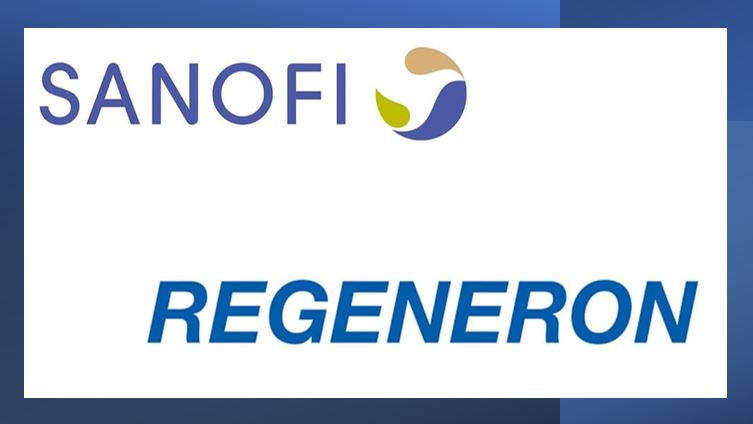News & Trends - Pharmaceuticals
First biologic for severe atopic dermatitis targeting underlying immune dysregulation, now PBS listed

Pharma News: Clinical experts are welcoming the Pharmaceutical Benefits Scheme (PBS) listing of a first-in-class therapy that blocks proteins responsible for type 2 inflammation in atopic dermatitis.
From 1 March, Dupixent (dupilumab), jointly developed by Sanofi and Regeneron, will be reimbursed for the treatment of patients, 12 years and above, with severe atopic dermatitis, who have failed to respond to topical treatments.
Dermatologist, Associate Professor Peter Foley, Director of Research, Skin Health Institute, said “The PBS listing of Dupixent is exciting news for many patients with severe atopic dermatitis and will provide specialists with a welcome alternative to long-term use of topical medication and immunosuppressant therapy.
“Biologic therapy represents a new treatment paradigm for severely impacted atopic dermatitis patients,” he said.
Dupixent is a fully-human monoclonal antibody that inhibits the signalling of the interleukin-4 (IL-4) and interleukin-13 (IL-13) proteins, and is not an immunosuppressant.
A network meta-analysis of 74 randomised trials with over 8,000 participants indicated, with a high degree of certainty, dupilumab as the most effective treatment in achieving a 75% reduction in the Eczema Area and Severity Index (EASI-75) score and improving the Patient-Oriented Eczema Measure (POEM) score during short-term follow-up when compared with placebo (risk ratio [RR] 3.04 and mean difference 7.3, respectively).
Professor Connie Katelaris, from the Department of Immunology and Allergy at Campbelltown Hospital said, “As the first targeted medication for severe atopic dermatitis, Dupixent treats the underlying immune dysregulation, known as type 2 inflammation, without causing broad immunosuppression.”
“This means that many patients will no longer need to struggle with unsightly skin rashes and unrelenting itchy skin which may disrupt sleep, impact work and relationships, require hospitalisation to treat infections, and increase the risk of anxiety and depression,” she said.
Welcoming the Federal Minister for Health, Greg Hunt’s announcement, Sanofi Genzyme Australia and New Zealand Head of Medical, Dr Paul King said the listing “heralds a new era in the treatment of severe atopic dermatitis.
“Specialists have been waiting a long time for a therapy that targets type 2 inflammation to address the immune system overreaction in atopic dermatitis. This PBS listing for adults and adolescents recognises the extent to which severe atopic dermatitis can impact on the mental and physical wellbeing of patients,” Dr King said.
Dupixent has been studied in more than 2,500 adult patients and 250 adolescent patients with moderate-to-severe atopic dermatitis. In the pivotal studies, at least three times as many patients treated with Dupixent, compared to placebo, achieved ≥75% improvement in lesion extent and severity at 16 weeks.
In the one-year CHRONOS study, which included 740 adults with moderate-to-severe atopic dermatitis, the 16-week efficacy responses were maintained at week 52. For some patients, improvements in itch reduction were seen as early as week 2.
Dupixent is also the only systemic treatment for uncontrolled moderate-to-severe atopic dermatitis that has been studied for up to three years in adults. The long-term safety profile of Dupixent observed in adolescents was consistent with that seen in adults with atopic dermatitis.
Approximately 100,000 Australians are living with severe atopic dermatitis. Recent Australian management consensus guidelines recommended Dupixent as a first-line systemic treatment option in adults with moderate-to-severe atopic dermatitis who are uncontrolled with topical therapies.
“We are pleased that we have been able to reach agreement with the Australian Government to list Dupixent on the PBS and thank the many clinicians, patients and patient organisations who advocated for both a greater understanding of atopic dermatitis and access to new treatment options,” Dr King added.
Digital & Innovation

Medical drone to reduce health equity gaps in rural and remote Australia
A specialised medical drone which increases accessibility to essential health services such as pathology, medicines, and telehealth services in rural […]
MoreNews & Trends - Pharmaceuticals

We’ve spent more on healthcare, but it’s been worth it
Healthcare expenditure is surging, with Australia now allocating approximately one-tenth of its budget to this sector. This financial uptick prompts […]
MoreNews & Trends - Pharmaceuticals

New partnership to raise the bar in precision oncology in Queensland
Pharma News: The Australian Translational Genomics Centre (ATGC) is teaming up with non-profit research organisation Omico and the PrOSPeCT program […]
MoreNews & Trends - Biotechnology

AusBiotech appoints new CEO: Former Sanofi corporate affairs and sustainability leader takes the helm
Biotech News: AusBiotech, the nation’s leading industry body for the biotech sector, has named former leader at Sanofi, Rebekah Cassidy, […]
More